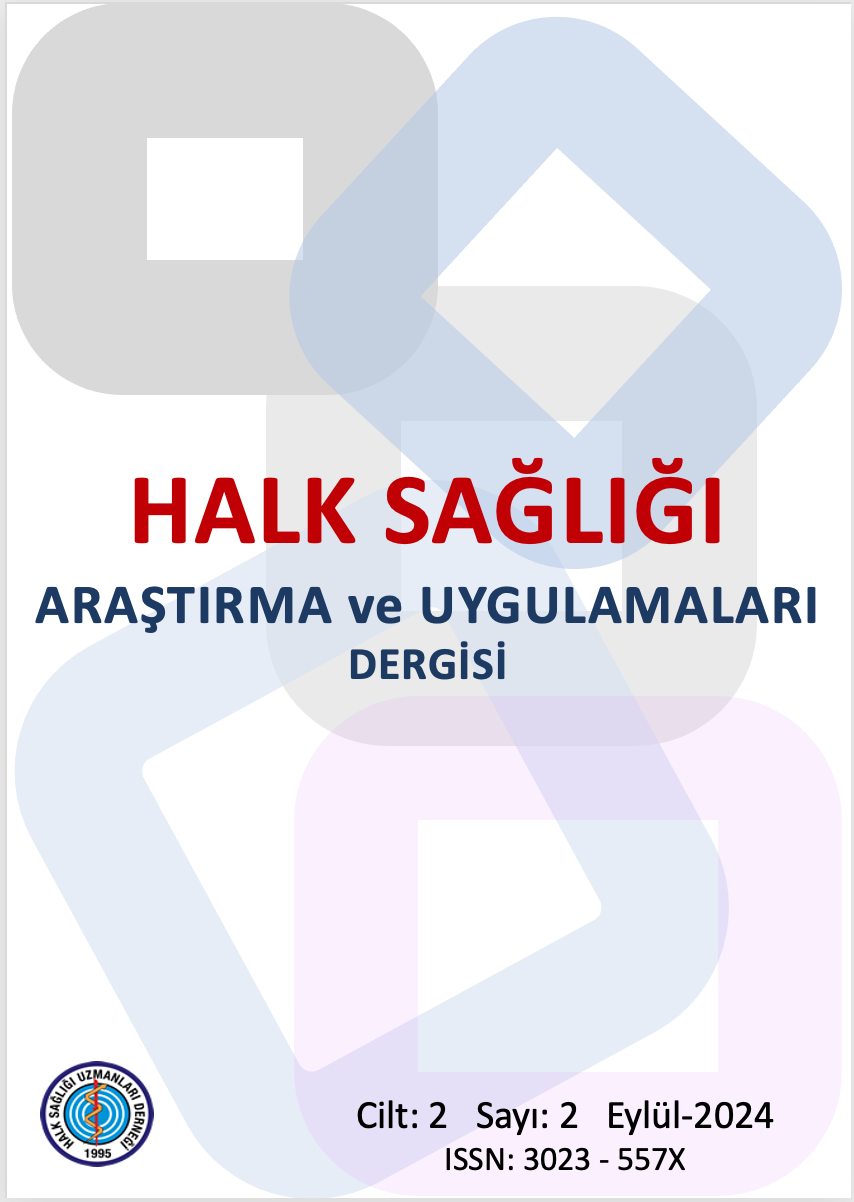Knowledge levels of Dokuz Eylül University Faculty of Medicine and PTR senior year students about the use of technology in health
DOI:
https://doi.org/10.5281/zenodo.13840689Keywords:
Virtual Reality, Ethics, Physical Therapy and Rehabilitation Education, Medical Education, Health Technology AssessmentAbstract
The aim of this study is to determine the level of knowledge and the factors affecting the use of Visual Reality (VR), Health Technologies (HT) and Ethical Problems (EP) of the final year students of Medicine and Physical Therapy and Rehabilitation (PTR) faculties studying at Dokuz Eylul University (DEU) in the 2022-2023 academic year. Data were collected through face-to-face interviews with a questionnaire. The population of the research consists of last year students of PTR and Medicine faculties in 2022-2023 academic year. The number of last year students of Faculty of Medicine is 260, and PTR Faculty is 160. The population of the research is a total of 420 students. In the research, sample selection was not made and it was aimed to reach the all population. The total accessibility rate is 58% with 242 students. Statistical analyzes were performed with IBM SPSS 27.0 program. It was determined that only 23.6% of the students had sufficient knowledge level. A significant difference was found between female and male students (29% vs 17%) in having sufficient knowledge. Female students reached this value at a higher rate. A statistically significant difference was found between PTR and medical students in having sufficient knowledge (45% vs 14%). According to the logistic regression analysis, studying in the medical school increases the risk of not having sufficient knowledge about HT, VR and EP 2.97 times (95% CI 1.5-6.0) and not seeing VR practice in the field of health is 5.18 times (95% CI 2.5-10.6). About VR and EP in medical students; HT related deficiencies have been identified in PTR students. The reason for this missing information may be staying away from these technologies in the curriculum and internship practices or teaching and using only technologies specific to that profession. For this reason, it is recommended that medical and PTR students be given more comprehensive training on health technologies used in health services.
References
Öztürk E. O. , Sondaş A. Sanal Sağlık: Sağlıkta Sanal Gerçekliğe Genel Bakış. Kocaeli Üniversitesi Fen Bilimleri Dergisi. 2020; 3(2): 164-169.
Yiğit, A. , Erdem, R. Sağlık Teknolojisi Değerlendirme: Kavramsal Bir Çerçeve. Süleyman Demirel Üniversitesi Sosyal Bilimler Enstitüsü Dergisi. 2016; (23): 215-249.
World Health Organization. Health Technologies [İnternet]. 2023 [Erişim Tarihi 14 Ağustos 2024]. Erişim adresi: https://www.who.int/europe/news-room/fact-sheets/item/health-technologies
Brooks Jr. ve ark. Research directions in virtual environments. Computer Graphics. 1992; 26(3): 153.
Aran O.T, Köse B, Akel S, Öksüz, Ç. Ataksili Bir Bireyde Sanal Gerçeklik Temelli Rehabilitasyon Uygulamasının Etkinliği-Olgu Raporu. Ergoterapi Ve Rehabilitasyon Dergisi. 2014; 2(3): 159-164
University of California. Postman Neil. Five things we need to know about technological change. [İnternet]. [Erişim tarihi: 3 Ekim 2022]. Erişim adresi: https://web.cs.ucdavis.edu/~rogaway/classes/188/materials/postman.pdf .
Spiegel JS. The Ethics of Virtual Reality Technology: Social Hazards and Public Policy Recommendations. Sci Eng Ethics. 2018; 24(5): 1537-1550. doi:10.1007/s11948-017-9979-y
Yıldız Ş. , Kırdı E. Fizik Tedavi Ve Rehabilitasyon Fakültesi Öğrencilerinin Teknoloji İle İlgili Bakış Açılarının Belirlenmesi. İzmir Katip Çelebi Üniversitesi Sağlık Bilimleri Fakültesi Dergisi. 2022; 7(3): 549-555.
Blumenthal, Jenna et al. “Physiotherapists' and Physiotherapy Students' Perspectives on the Use of Mobile or Wearable Technology in Their Practice.” Physiotherapy Canada. Physiotherapie Canada vol. 70,3 (2018): 251-261. doi:10.3138/ptc.2016-100.e
Khamis N, Aljumaiah R, Alhumaid A, ve ark. Undergraduate medical students' perspectives of skills, uses and preferences of information technology in medical education: A cross-sectional study in a Saudi Medical College. Med Teach. 2018; 40: 68-76. doi:10.1080/0142159X.2018.1465537
Brown Wilson C, Slade C, ve ark. Health care students experience of using digital technology in patient care: A scoping review of the literature. Nurse Educ Today. 2020; 95: 104580. doi:10.1016/j.nedt.2020.104580
Kolla S, Elgawly M, Gaughan JP, Goldman E. Medical Student Perception of a Virtual Reality Training Module for Anatomy Education. Med Sci Educ. 2020;30(3):1201-1210. Published 2020 Jun 9. doi:10.1007/s40670-020-00993-2
Downloads
Published
How to Cite
Issue
Section
License
Copyright (c) 2024 HALK SAĞLIĞI ARAŞTIRMA VE UYGULAMALARI DERGİSİ

This work is licensed under a Creative Commons Attribution-NonCommercial 4.0 International License.


